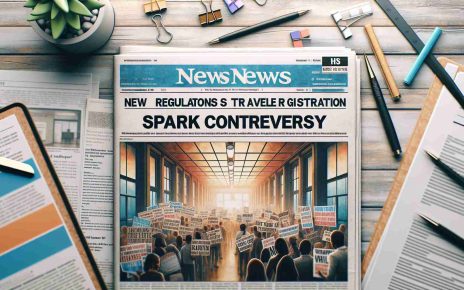An investigation by Chile’s CIPER has revealed concerning spending on domestic and international trips funded by municipal public funds by 258 mayors and 829 councilors between 2021 and 2024.
Records from the Lobbying Law show that millions of pesos were allocated for these trips during this period, with several cases showing irregularities in justifications and destinations. The reasons cited for these trips ranged from tourism and sports training to leisure activities like visits to theme parks, all funded by public resources.
In a notable instance, three councilors in Alto Hospicio justified a trip to Punta Cana, Dominican Republic, as training, initially approved for destinations like Santo Domingo and Havana. However, a travel agent consulted by CIPER disputed the claim that the altered route was more cost-effective, casting doubt on the legitimacy of the justification.
Furthermore, in Colina, Mayor Isabel Valenzuela used municipal funds for a trip to Orlando, USA, accompanying a school team. Expenses for this trip, including a visit to Universal Studios, amounted to $3.8 million. Councilor Catalina Lillo expressed dismay at the need to cover such recreational expenses with public funds, highlighting the lack of transparency in accountability.
According to the report, some authorities also embarked on multiple foreign trips using significant municipal funds. Councilor José Luis Astorga was identified as the highest spender over the last four years, with $26.5 million allocated to trips to countries like Colombia, Peru, and the Dominican Republic, justifying them as investments in communal development.
Instances like those of Mayor Nelson Opazo and Mayor Jacqueline Romero, accumulating a high number of days and trips respectively, further underscore concerns regarding the excessive use of public funds for personal travel.
This situation raises questions about the oversight of public resource usage, as highlighted by CIPER, placing a spotlight on the challenges faced by the General Comptroller of the Republic in proactively monitoring and regulating such expenses.
New Revelations on Municipal Authorities’ Use of Public Funds for Recreational Trips
A recent follow-up investigation into the utilization of public funds by municipal authorities has unveiled additional concerning facts that shed light on the extent of the issue. While the initial report revealed instances of questionable spending on both domestic and international trips, further details have emerged that deepen the complexity of the situation.
Key Questions:
1. What measures are in place to ensure the accountability and transparency of public funds used for recreational trips by municipal authorities?
2. How do municipal officials justify extravagant expenses on these trips, especially when they involve leisure activities not directly related to official duties?
3. What steps can be taken to address the loopholes that allow for the misuse of public resources for personal travel purposes?
Revealed Facts:
In the latest findings, it has come to light that some municipal authorities not only allocated substantial amounts of money for recreational trips but also misrepresented the purposes of these travels. Cases of altered itineraries to potentially more expensive destinations, as seen in the trip to Punta Cana, Dominican Republic, raise doubts about the legitimacy of the justifications provided.
Moreover, the revelation of Mayor Isabel Valenzuela’s trip to Orlando, USA, for accompanying a school team, highlights the blurred lines between official duties and personal leisure. The significant expenses incurred during such trips, which included visits to tourist attractions like Universal Studios, further underscore concerns about fiscal responsibility and ethical conduct.
Challenges and Controversies:
One of the primary challenges associated with the issue of public funds being used for recreational trips is the lack of stringent oversight mechanisms to prevent abuses. Municipal authorities exploiting loopholes in accountability mechanisms and justifying unnecessary expenditures under the guise of community development initiatives pose a significant challenge to financial probity.
Moreover, the controversy surrounding the accumulation of excessive days and trips by certain officials exemplifies a systemic problem that warrants immediate attention. The existing regulatory framework may be insufficient in curbing the misuse of public funds for personal travel, necessitating a comprehensive review of policies and enforcement mechanisms.
Advantages and Disadvantages:
While recreational trips can have potential benefits in fostering cultural exchange and knowledge sharing, the indiscriminate use of public funds for such purposes poses a series of disadvantages. The lack of transparency and accountability in expenditure reporting can erode public trust in municipal authorities and undermine the integrity of the governance system.
Furthermore, the diversion of resources from essential public services to finance recreational activities raises ethical concerns and perpetuates inequalities in resource allocation. Balancing the benefits of cultural exposure with the need for fiscal prudence and ethical conduct remains a delicate challenge for municipal administrations.
For further insights into the oversight mechanisms governing public fund usage and recommendations for enhancing accountability, visit CIPER Chile.



